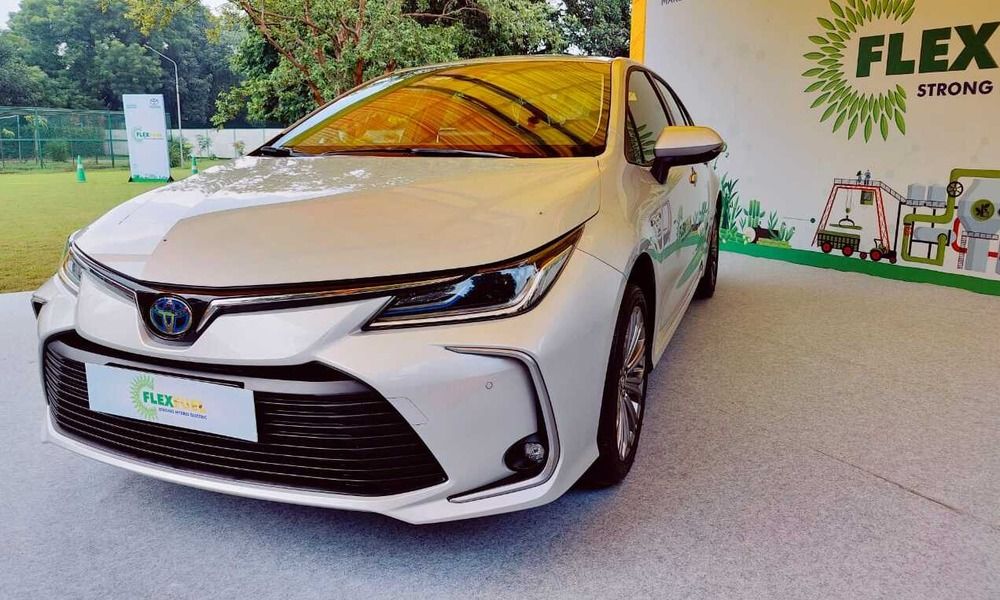Maruti Suzuki To Transition Its Entire Model Range To E20 Fuel Compatibility By March 2023

Highlights
- Automakers have to comply their range with 20 per cent ethanol blended fuel or E20 fuel by April 2023.
- Maruti Suzuki confirmed that its entire model range will comply with the E20 fuel by March 2023.
- Maruti Suzuki did not revel any plan regarding flex-fuel powertrains as yet.
India's push to achieve 'net zero emissions by 2070 and begin reducing the nation's carbon footprint from 2030 has put an impetus on automakers to manufacture green energy vehicles. Now green energy vehicle is often confused with only electric vehicles, while the government and more specifically, the Ministry of Road, Transport and Highways (MoRTH) has a broader spectrum including alternate fuel as well, with an undivided focus on ethanol-blended fuel. Automakers in India have to comply their range with 20 per cent ethanol-blended fuel or E20 fuel by April 2023 and India's largest automaker - Maruti Suzuki has already confirmed to car&bike that its entire model range will be transitioned to comply with the E20 fuel by March 2023.

Also Read: India To Dominate Green Energy Vehicle Market Share In The Global Market: Kenichi Ayukawa
Speaking with carandbike, C V Raman, Senior Executive Director - Engineering & CTO, Maruti Suzuki India said, "From April 2023, all manufacturers will have vehicles that are material compliant to E20, so that E20 can be filled. In 2025 when E20 fuel becomes available in pan India, then also we'll also switch over and we'll do the calibration with the e20 fuel. Going forward we'll also be working on CBG and see how we can leverage that because we already have CNG vehicles, and CBG can be easily adopted. In stages from now on, whatever new vehicle that is coming will be E20 compliant and from March (2023) we'll transition all our fleet to E20 compatibility."

Earlier in October, Kenichi Ayukawa, former Managing Director and CEO - Maruti Suzuki and former President of the Society Of India Automobile Manufacturers (SIAM) said that the Indian auto industry is likely to dominate the green energy vehicle market share in the global sphere. At present, Maruti Suzuki manufactures models that are compatible with E10 blended fuel and going forward it will only make E20-compatible powertrains. That said, carmakers will have to recalibrate their engines to partially compensate for the drop in fuel efficiency of ethanol-powered engines, Maruti Suzuki also expects E20 fuel to be priced strategically at subsidised rates. It will help make up for the rise in average trip cost due to the drop in fuel efficiency. "So some part of it is done by recalibration and octane rating, and the second part is through the pricing of the e20 fuel as well," Raman added.
While EVs will of course take the lead in achieving a bigger market share in the green energy vehicle segment, Flex fuel and hydrogen-powered vehicles too will contribute considerably in achieving this feat. Nitin Gadkari, Union Minister For Road, Transport and Highways (MoRTH) has been stressing launching flex-fuel and hydrogen-powered models and Toyota has already showcased the flex-fuel Corolla Altis in India.

Maruti Suzuki did not reveal any plan regarding flex-fuel powertrains as yet, but it is likely to benefit from its alliance with Toyota when it comes to technology adoption.
Last Updated on October 19, 2022
Related Articles
Latest News
- Home
- News
- Auto Industry
- Maruti Suzuki To Transition Its Entire Model Range To E20 Fuel Compatibility By March 2023














